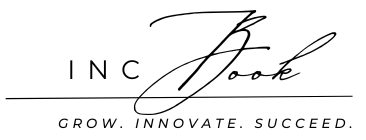Business loans can be a lifeline, but hidden costs can sneak up on you and make your loan much more expensive than expected. Understanding these hidden fees will help you make more informed decisions, negotiate better terms, and ultimately protect your bottom line. Always ask your lender for a full breakdown of all costs, and don’t hesitate to negotiate where possible. Knowing what you’re up against puts you in control and keeps your loan manageable.
1. Prepayment Penalties
- 💡 What it is: A fee for paying off your loan early.
- 🔎 Why it matters: Lenders want to make their expected interest, so paying early can trigger a penalty.
- 🚩 Watch out for: Loans with terms that penalize you for shortening the loan period.
- ✅ Pro tip: If you plan on paying off the loan early, make sure your lender doesn’t charge prepayment fees, or opt for a loan without this penalty.
2. Application Fees
- 💡 What it is: A fee charged just for applying for a loan.
- 🔎 Why it matters: You could be paying $100–$500 upfront, and that’s non-refundable—even if you get denied.
- 🚩 Watch out for: Applying to multiple lenders can rack up application costs quickly.
- ✅ Pro tip: Ask about application fees in advance, and focus on lenders with low or no fees when shopping around.
3. Origination Fees
- 💡 What it is: A fee to cover the cost of processing the loan.
- 🔎 Why it matters: Typically 1%–6% of the loan amount, this fee is deducted before you even receive your funds.
- 🚩 Watch out for: Higher origination fees with certain online lenders or for borrowers with lower credit scores.
- ✅ Pro tip: Negotiate the origination fee upfront or shop around for a lender with lower fees, especially if you’re borrowing a large amount.
4. Late Payment Fees
- 💡 What it is: A penalty for missing a loan payment deadline.
- 🔎 Why it matters: Late fees can be hefty, ranging from a flat fee to a percentage of the missed payment, quickly adding up if you’re struggling with cash flow.
- 🚩 Watch out for: Lenders with high late fees or short grace periods for payments.
- ✅ Pro tip: Automate your loan payments to avoid late fees, and ask your lender about grace periods upfront.
5. Loan Renewal Fees
- 💡 What it is: A fee charged when you renew or extend an existing loan.
- 🔎 Why it matters: If you need more time to repay, lenders may charge a fee to renew the loan term, potentially adding hundreds or thousands to your total cost.
- 🚩 Watch out for: Renewal terms that sneak in extra costs or higher interest rates.
- ✅ Pro tip: If you foresee needing an extension, factor in renewal fees from the start and negotiate favorable terms at the beginning of the loan.
6. Check Processing Fees
- 💡 What it is: A small fee charged if you pay by check instead of via electronic payment.
- 🔎 Why it matters: While it may seem minor, this fee can be charged monthly, adding to your overall cost.
- 🚩 Watch out for: Lenders that charge per-check fees without offering any free payment methods.
- ✅ Pro tip: Switch to automatic or electronic payments if possible to avoid ongoing check fees.
7. Annual Fees
- 💡 What it is: A yearly fee charged by some lenders just to keep the loan account open.
- 🔎 Why it matters: Even if you’re in good standing, these fees can hit you every year, adding hundreds to the total loan cost.
- 🚩 Watch out for: Lenders that sneak annual fees into long-term loans or lines of credit.
- ✅ Pro tip: If possible, avoid loans with annual fees or ask for them to be waived during negotiations.
8. Early Termination Fees
- 💡 What it is: A fee charged for closing a loan account early, even after it’s fully paid.
- 🔎 Why it matters: Even when your loan is paid off, closing it ahead of the scheduled term could result in an extra fee.
- 🚩 Watch out for: Long-term loans or leases with early termination clauses that charge fees even after full repayment.
- ✅ Pro tip: Look for flexibility in loan terms if you plan to repay early, and ask about potential penalties for early account closure.
9. Documentation Fees
- 💡 What it is: Fees for preparing and filing legal paperwork related to the loan.
- 🔎 Why it matters: This administrative cost can vary widely and might not be disclosed upfront.
- 🚩 Watch out for: High documentation fees that aren’t well-explained or included in the overall loan breakdown.
- ✅ Pro tip: Clarify any documentation fees with your lender before signing, and try to negotiate them down or request a fee waiver.
10. Maintenance Fees
- 💡 What it is: A recurring fee to maintain your loan account, often seen with lines of credit or revolving loans.
- 🔎 Why it matters: Even if you don’t draw from your line of credit, some lenders charge a monthly or annual fee just to keep it open.
- 🚩 Watch out for: Hidden fees in lines of credit that can drain your cash flow over time.
- ✅ Pro tip: If you’re not using your line of credit regularly, consider closing it or negotiating the removal of maintenance fees.
11. Loan Closing Fees
- 💡 What it is: Costs associated with officially closing the loan, often seen with large, complex loans like real estate or equipment financing.
- 🔎 Why it matters: Closing costs can include things like attorney fees, appraisal costs, and title insurance, which add up to thousands of dollars.
- 🚩 Watch out for: High closing fees that aren’t discussed until the loan is almost finalized.
- ✅ Pro tip: Ask for an itemized breakdown of all closing costs before you commit, and don’t be afraid to shop around for better deals.
12. Default Interest Rates
- 💡 What it is: A significantly higher interest rate that kicks in if you miss payments or default on the loan.
- 🔎 Why it matters: Missing a few payments could cause your interest rate to spike, making it harder to catch up on payments.
- 🚩 Watch out for: Lenders who impose steep default rates after just one missed payment.
- ✅ Pro tip: Always read the fine print on default rates, and have a contingency plan to ensure you don’t miss payments.
13. Legal Fees
- 💡 What it is: Costs for legal services required during the loan process, like drafting contracts or conducting due diligence.
- 🔎 Why it matters: Depending on the complexity of your loan, legal fees can quickly escalate, adding thousands to your borrowing costs.
- 🚩 Watch out for: Loans that require extensive legal oversight, especially for real estate or mergers.
- ✅ Pro tip: Negotiate legal fees upfront or consider using your own legal counsel to manage costs.
14. Draw Fees (for Lines of Credit)
- 💡 What it is: A fee charged every time you withdraw funds from a line of credit.
- 🔎 Why it matters: While the rates on lines of credit may seem low, frequent draws can lead to accumulating fees.
- 🚩 Watch out for: Lenders that charge both a draw fee and interest on the amount you withdraw.
- ✅ Pro tip: Only draw funds when necessary and consolidate withdrawals to minimize fees.
15. Undisclosed Interest Rate Increases
- 💡 What it is: A sudden increase in your interest rate due to market changes, often hidden in variable-rate loans.
- 🔎 Why it matters: Your loan’s cost can skyrocket unexpectedly, making it much more expensive than you initially planned.
- 🚩 Watch out for: Variable-rate loans with vague terms about how and when rates can change.
- ✅ Pro tip: Consider locking in a fixed-rate loan to avoid surprises, or closely monitor any variable-rate loan to stay ahead of changes.
Business loans can be a lifeline, but hidden costs can sneak up on you and make your loan much more expensive than expected. Understanding these hidden fees will help you make more informed decisions, negotiate better terms, and ultimately protect your bottom line. Always ask your lender for a full breakdown of all costs, and don’t hesitate to negotiate where possible. Knowing what you’re up against puts you in control and keeps your loan manageable.



